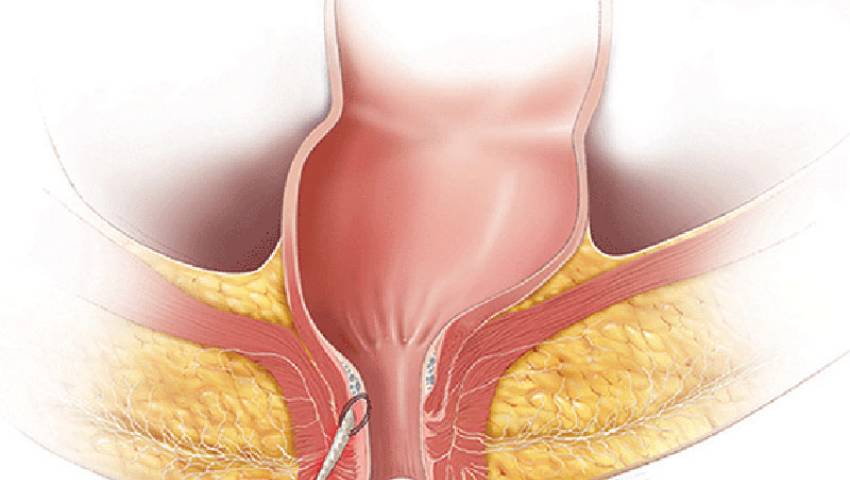
- 18/07/2023
- Dr. Samrat Jankar
- 0 Comments
- Blog
What Happens if Anal Fistula is Not Treated on Time?
Living with an anal fistula can be an uncomfortable experience, and pursuing timely medical attention is required for effective treatment. Unfortunately, some people may delay or ignore treatment, expecting the condition will resolve on its own. However, ignoring an anal fistula can lead to serious complications and worsen the overall prognosis.
In this blog post, we will delve into the possible consequences of not treating an anal fistula promptly. Dr. Samrat Jankar, a renowned fistula specialist in Pune, Maharashtra, sheds light on the importance of seeking appropriate medical care for this condition.
What are Anal Fistulas?
An anal fistula is a narrow tunnel-like path that forms between the skin of the anus (or rectum) and the inside of the anus. It usually grows as a result of an infection in an anal gland, which is a small gland that makes mucus lubricate the anal canal.
Treatments:
Surgery is basically still needed to treat an anal fistula. The intent of the surgery is a balance between getting relieved the fistula while watching the anal sphincter muscles, which could cause incontinence if wounded.
Treatment options for anal fistula:
- FiLaC procedure (Fistula-tract Laser Closure)
- LIFT procedure (Ligation of Intersphincteric Fistula Tract)
- PILTEC: a modification of the LIFT procedure
- VAAFT procedure (Video-assisted Anal Fistula Treatment)
- Fistula Plug
- Fistulotomy
- Ksharsutra
- Seton placement and surgery
- Laser fistula treatment
Complications of Untreated Anal Fistulas:
- Persistent Pain and Discomfort: One of the primary symptoms of an anal fistula is pain around the anus. If left untreated, the pain can worsen over time and become chronic. The constant distress can significantly impact your daily life, assembling it difficult to sit, walk, or engage in physical movements. Ignoring the pain can lead to a decreased quality of life and hinder your overall well-being.
- Recurrent Infections: Anal fistulas are often caused by an infection that assembles an abnormal tunnel between the anal canal and the skin near the anus. Without appropriate treatment, these infections can persist and recur often. The area around the fistula may evolve red, swollen, and tender, raising the risk of abscess formation. Recurrent infections can not only be painful but also compromise your immune system, leaving you sensitive to other health issues.
- Formation of Abscesses: If an anal fistula is left untreated, it can lead to the development of abscesses. Abscesses are collections of pus that can cause extreme pain, swelling, and fever. They need quick medical attention, as they can lead to serious complications if not exhausted and treated properly. Delaying treatment raises the risk of abscesses spreading to nearby tissues and causing further injury.
- Systemic Infections: In rare cases, an untreated anal fistula can lead to systemic infections. The infection can spread to other parts of the body, causing hurtful complications such as sepsis. Systemic infections require quick medical intervention and can be life-threatening if not treated promptly.
- Fistula Tracts and Complex Fistulas: When an anal fistula is not treated on time, it can progress and invent complex fistula tracts. These tracts can spread through various tissues, leading to multiple openings near the anus. Complex fistulas are more difficult to treat and may need invasive methods, such as surgery, to close the openings and prevent further difficulties. Early detection and proper treatment can help minimize the risk of complex fistulas and their associated surgical interventions.
- Anal Stenosis: Chronic inflammation caused by an untreated anal fistula can result in a condition called anal stenosis. Anal stenosis refers to the narrowing of the anal canal due to scar tissue formation. This can lead to difficulties in passing stool and may need additional treatment, such as anal dilation or surgery, to ease the condition. Timely intervention by a specialist like Dr. Samrat Jankar can help prevent the progression of anal stenosis and its associated complications.
- Anal Incontinence and Fecal Leakage: In some cases, untreated anal fistulas can cause damage to the anal sphincter muscles, which are responsible for controlling bowel movements. This damage can result in anal incontinence, leading to the involuntary leakage of feces or gas. Anal incontinence especially impacts a person’s quality of life, causing embarrassment, social pressure, and a loss of confidence.
- Anal Stricture: Continued inflammation and scarring associated with an untreated anal fistula can lead to the development of anal strictures. Anal strictures are narrow, constricted areas in the anal canal that can cause significant pain and difficulty during bowel movements. They can result in chronic constipation, fecal impaction, and even bowel obstruction if left untreated.
Conclusion:
Timely treatment of anal fistula is crucial to prevent complications and safeguard your health. It is essential to consult a qualified Fistula Surgeon like Dr. Samrat Jankar, who specializes in proctology, for accurate diagnosis and appropriate treatment options. Remember, early intervention can help alleviate symptoms, reduce the risk of complications, and ensure a healthier and more comfortable life. Don’t hesitate to seek medical advice and take control of your well-being.
